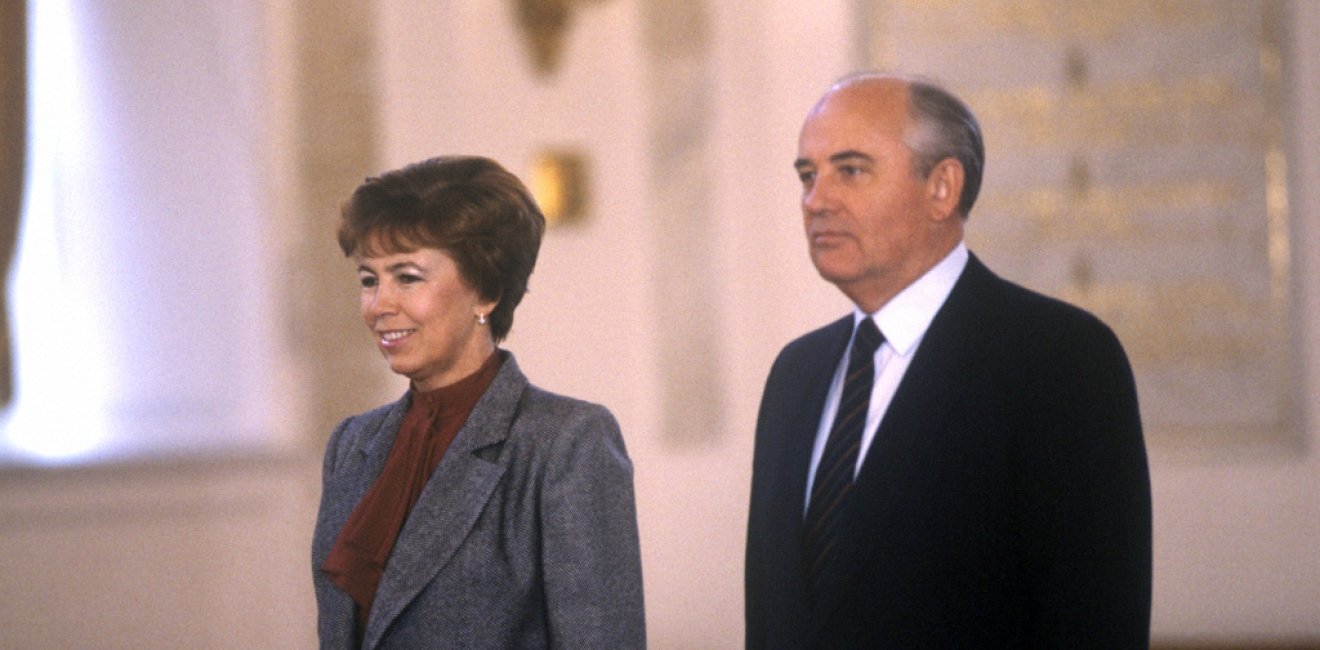
A blog of the Kennan Institute
Lyudmila Ulitskaya on the model Soviet citizen, Mikhail Gorbachev
Ever since I was a kid, I could not stand higher-ups. And I have organized my life in such a way as to avoid the humiliation of social interactions that remind me of the superior vs. subordinate dynamic. I developed a strong distaste for those in positions of authority early in life, and it has followed me ever since.
When asked whom they love more, Mommy or Daddy, well-trained Soviet children responded in concert: “Stalin!” But then Stalin died, new Soviet leaders followed, one after another, while I remained boringly consistent in my dislike for the people in power, from low-level executives to top party officials.
Mikhail Gorbachev was the only one I have made an exception for, though it was when he had already left his high office. I cannot say that I grew very fond of him, but I did, let’s say, accept him at the end of the day, the key words being “at the end.” The end of Gorbachev’s life was a good one. He was not put on trial or murdered, unlike many Russian leaders throughout history. He got to spend many years with his wife Raisa, whom he loved, cherished, and respected, and who he laid to rest in 1999. And he got to pass away peacefully in his own bed, as the phrase goes, which is a blessing in itself for the people of his generation.
He was a model Soviet citizen, “in public and private life,” as they used to write in dossiers of tourists going from the USSR to, say, socialist Poland. But unlike an average Soviet citizen, Gorbachev underwent a remarkable evolution. There were wars and popular unrest during his time at the top, and the Soviet state undertook some ruthless actions with his knowledge and approval, such as when the army brutally crushed a protest in Tbilisi in 1989 or attacked unarmed civilians defending a TV tower in Vilnius in 1991.
It was during an economic downturn that Gorbachev started the Soviet Union’s transformation, aiming for democratization and accelerated economic development. It was he who coined the words that became the symbols of his time: perestroika and glasnost. It is up to experts to decide whether he succeeded in what he was trying to do, but he undoubtedly launched a very important process.
Gorbachev was the last General Secretary of the Soviet Communist Party and ended up digging its grave, probably without fully realizing his role. Even so, the remains of that party are still poisoning the country with their toxins. I won’t argue that Gorbachev’s perestroika was a success, but glasnost was. It was Gorbachev who opened access to all sorts of information for the Soviet public, and he started a whole range of economic and political reforms. One cannot claim that those reforms were well implemented, but under Gorbachev’s leadership there emerged a spark of hope that the country could pursue the path of democratization, although even to this day, the vast majority of Russian people do not know what that means. Still, there is hope that eventually they will. And Mikhail Gorbachev deserves praise for that.
In October 2020, Gorbachev, staged by Latvian director Alvis Hermanis, premiered at the Theater of Nations in Moscow. This outstanding play with two Russian stars, Evgeny Mironov and Chulpan Khamatova, seems to me a great tribute to the memory of Mikhail Gorbachev and his wife Raisa. May the Russian people remember all the good things that Mikhail Gorbachev has managed to accomplish in his lifetime.
Editor’s note: After the war started, Alvis Hermanis left for his native Latvia; the actress Chulpan Khamatova is now in Latvia too. The actor Evgeny Mironov stayed in Moscow. Performance of Gorbachev has been discontinued.
The article originally appeared in Russian on Иными словами, a new Kennan Institute blog.
The opinions expressed in this article are those solely of the author and do not reflect the views of the Kennan Institute.
Author


Kennan Institute
After more than 50 years as a vital part of the Wilson Center legacy, the Kennan Institute has become an independent think tank. You can find the current website for the Kennan Institute at kennaninstitute.org. Please look for future announcements about partnership activities between the Wilson Center and the Kennan Institute at Wilson Center Press Room. The Wilson Center is proud of its historic connection to the Kennan Institute and looks forward to supporting its activities as an independent center of knowledge. The Kennan Institute is committed to improving American understanding of Russia, Ukraine, Central Asia, the South Caucasus, and the surrounding region through research and exchange. Read more

Explore More in The Russia File
Browse The Russia File
Chechnya as a Model of Modern Russia

Russia’s Indigenous Communities and the War in Ukraine

Gas and Power in a Changing US–Russia Relationship

